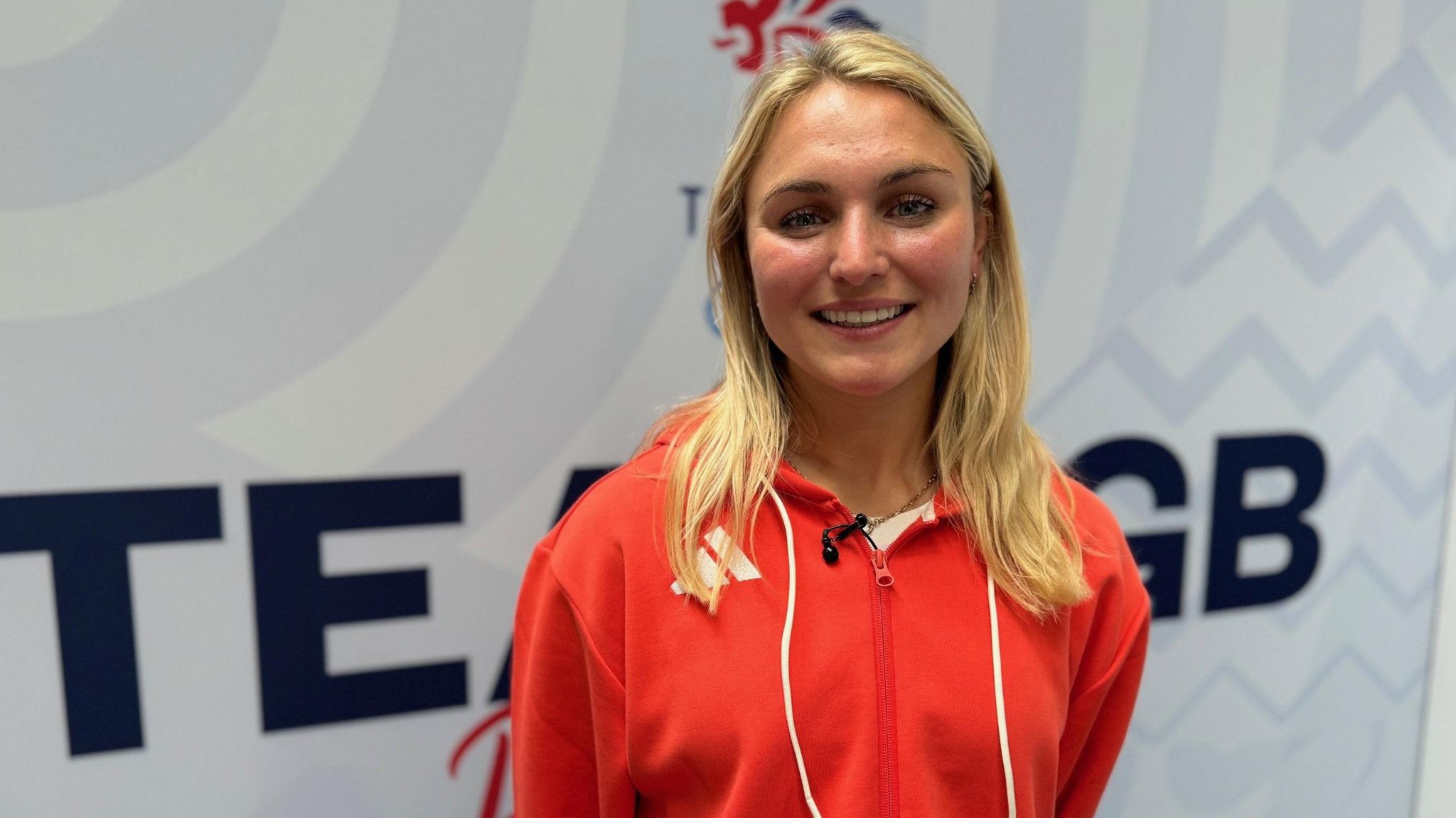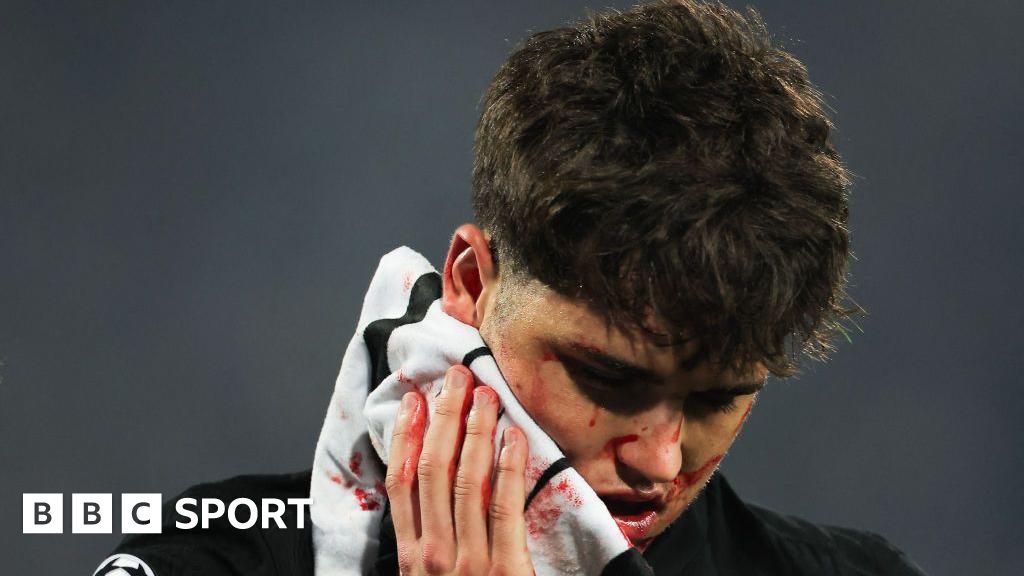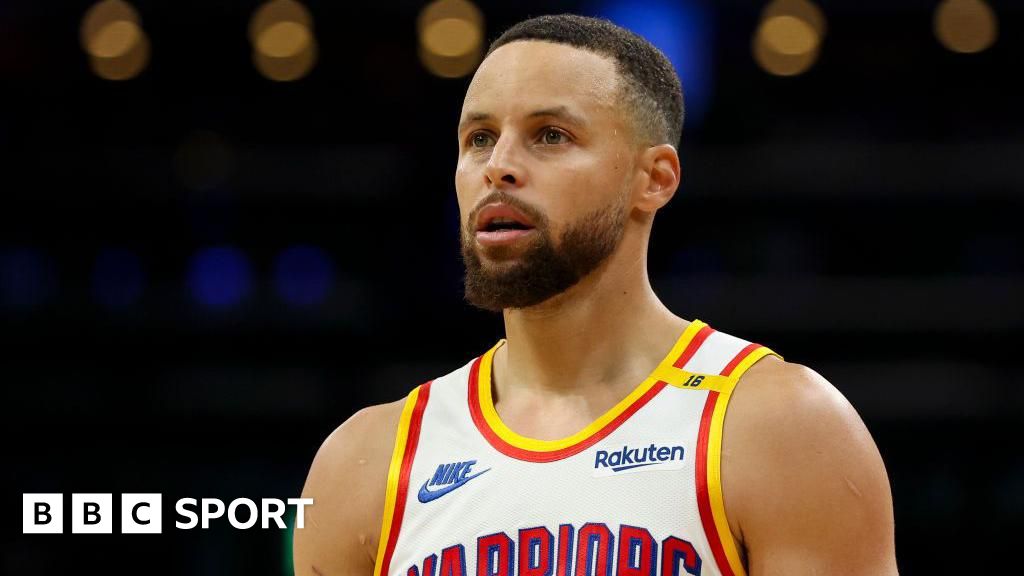ARTICLE AD BOX

Ellie Boatman will be part of Team GB's rugby sevens team at the Olympic Games in Paris
Chris Peddy and Lewis Coombes
BBC Sport and BBC South
Warning: This article contains details about eating disorders some readers might find distressing.
Rugby player Ellie Boatman had to overcome body confidence issues and eating disorders to rekindle her love of the game and book her place at the Olympics.
Unhappy with being one of the only girls playing rugby and the stigma that came with it, she stopped playing at the age of 16.
After suffering from eating disorders during her lowest moments at university, she was convinced by her friend to give the sport another chance.
A hat-trick in her first game helped reignite the spark, which has led to her playing in a World Cup and Commonwealth Games.
Now she travels to Paris, aiming to bring home her country's first ever medal in the sport as she represents Team GB in the rugby sevens.
"I always struggled with the way I looked from a young age, and we definitely went through a generation of seeing magazines and negative views towards women's bodies," the 27-year-old told BBC South.
"I definitely got sucked up in that, and when I really struggled was when I went to university and I was in charge of my own food for the first time, and lots of changes were happening.
"I got caught up in trying to be as small as I was, and I became quite unhappy and very miserable in my own body.
"[I've been] speaking to lots of girls and seeing how many experience similar feelings when they're growing up, so I think it's really important to share that now. I definitely go through dips, but I'm very happy to say I'm confident in who I am now, which has definitely been a journey."
Boatman first started playing rugby when she was four years old at Camberley Rugby Football Club in Surrey, where she was allowed to play with boys up to age 11.
'Rugby wasn't really accepted for girls'
Image source, Camberley Rugby Football Club/BBC
Image caption,Ellie Boatman began playing rugby at the age of four but quit the sport when she was 16
She was named vice-captain of her team at Hall Grove School in Bagshot and joined London Irish, where she played for the under-13s, followed by the under-15s.
It was when she moved to Esher Rugby Club that she began to lose her love for the game.
"It was a confusing time for any young girl then, and rugby wasn't really accepted; I was one of the only girls who played rugby in my teens growing up," she said.
"School can be a tricky time at that age anyway, and not everyone was that supportive at times."
Boatman attended the University of Southampton, where she developed eating disorders as she struggled with the transition and responsibility of living away from home.
A post on her Instagram account details how she initially gained weight from eating more and drinking a lot of alcohol, which led her to under-eating and over-exercising as she lost weight.
Later, this turned into binge-eating and purging - the act of ridding the body of food and calories.
One of her best friends was the captain of the rugby team at Southampton and convinced her to begin playing again for fun.
A hat-trick on her debut sparked her passion for the game once again, and she never looked back.
'If someone is negative it reflects more on them than you'
Image source, Getty Images
Image caption,Ellie Boatman says it is important for young girls to see female rugby players being strong and powerful
As she reconnected with the game, she joined Trojans, her local club, and would go on to play for Saracens, Richmond, Wasps and Harlequins, before going professional at international level with the England Sevens and now Great Britain Sevens.
She represented England at the 2022 Commonwealth Games in Birmingham and the Rugby World Cup Sevens in Cape Town, South Africa, the same year.
"What helps me is thinking about what my body does for me, rather than necessarily how it looks, and thinking how incredible you're able to run, or catch a ball, or able to do all these things that lots of people in the world aren't able to do," Boatman said.
"A lot of the time, no one is looking at how you look when you run; people care more about the try you're scoring or tackle you're making. No one is looking at how you look.
"If anyone's ever being negative, it reflects more on them than it does on you.
"It's so good for young girls to see all of us training to be strong and be powerful and not necessarily just worrying about how we look, and exercising in terms of punishment; it’s for a purpose and enjoyment, and I always try and preach that and say that to any young girl."
Team GB's men's sevens team failed to qualify for the Games after losing 14-5 to South Africa in the repechage final in Monaco.
But Boatman believes the women can bring home Britain's first medal in the sport since it was introduced in Rio de Janeiro in 2016.
'Our target is to win the gold medal'
Image source, Getty Images
Image caption,Ellie Boatman runs in a try for Great Britain against South Africa in January
GB's women finished fourth in Rio and Tokyo, but the current team goes to Paris as the European champions.
"The target is always to win gold; that's what we’re here and have been training for," she said.
"We're feeling really good, and I definitely think we will be within a shot of going for gold and medal contention."
Boatman is very vocal on her social media accounts about her experiences, as she aims to inspire other girls to follow their paths in sport when faced with similar challenges.
Along with Team GB teammates Jasmine Joyce and Celia Quansah, she has taken part in a campaign with lingerie brand Bluebella to promote body positivity with the hashtag #StrongIsBeautiful.
The campaign shows the three of them playing rugby while dressed in lingerie, which has been met with a mixed reception.
But she hopes her story can inspire the next generation of girls to continue to play sport without worrying about what others think of them.
"All of us look different. If we all ate and exercised in the same way, we'd still all look different, so never try and look like a certain person because we all have different purposes and goals with our sports," she added.
"So just focus on yourself and what your body can do, and celebrate all the different body shapes and sizes you’ll see."

 4 months ago
17
4 months ago
17








 English (US)
English (US)